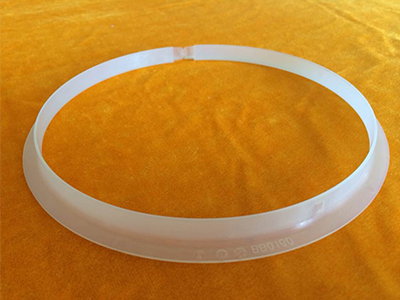Dalian injection molding tells you that cracking is a common defect of plastic products, which is mainly caused by stress deformation. It mainly includes residual stress, external stress and stress deformation caused by external environment. Non crystalline resins such as as as resin, ABS resin and PMMA resin are more prone to residual stress than crystalline resins such as polyethylene and polyformaldehyde, which should be paid attention to.
During demoulding and pushing, due to the small demoulding slope and the rough mold glue and punch, the pushing force is too large, resulting in stress, and sometimes even whitening or cracking around the pushing rod. As long as you carefully observe the location of the crack, you can determine the cause. When metal parts are embedded during injection molding, it is easy to produce stress, and it is easy to crack after a period of time, which is more harmful.
This is mainly because the thermal expansion coefficients of metal and resin are very different, resulting in stress, and with the passage of time, the stress exceeds the strength of the gradually deteriorating resin material to produce cracks. In order to prevent the resulting cracking, as an experience, the universal polystyrene with a wall thickness of 7 "and the outer diameter of embedded metal parts is basically not suitable for adding inlays, and the inlays have little impact on nylon.
Because the thermal expansion coefficient of glass fiber reinforced resin material is small, it is more suitable for inserts. In addition, preheating metal inserts before forming also has a good effect. Barrel temperature: the temperature to be controlled in the molding process includes barrel temperature, nozzle temperature and mold temperature. The first two temperatures mainly affect the plasticization and flow of plastics, and the latter temperature mainly affects the temperature Flow and cooling of plastics.
Each kind of plastic has different flow temperature. For the same kind of plastic, the flow temperature and decomposition temperature are different due to different sources or brands. This is due to different average molecular weight and molecular weight distribution. The plasticization process of plastics in different types of machines is also different, so the barrel temperature is also different. Mold temperature: the influence of mold temperature on the internal temperature of products The mold temperature depends on the crystallinity of the plastic, the size and structure of the product, the performance requirements, and other process conditions (melt temperature, speed and pressure, molding cycle, etc.).







